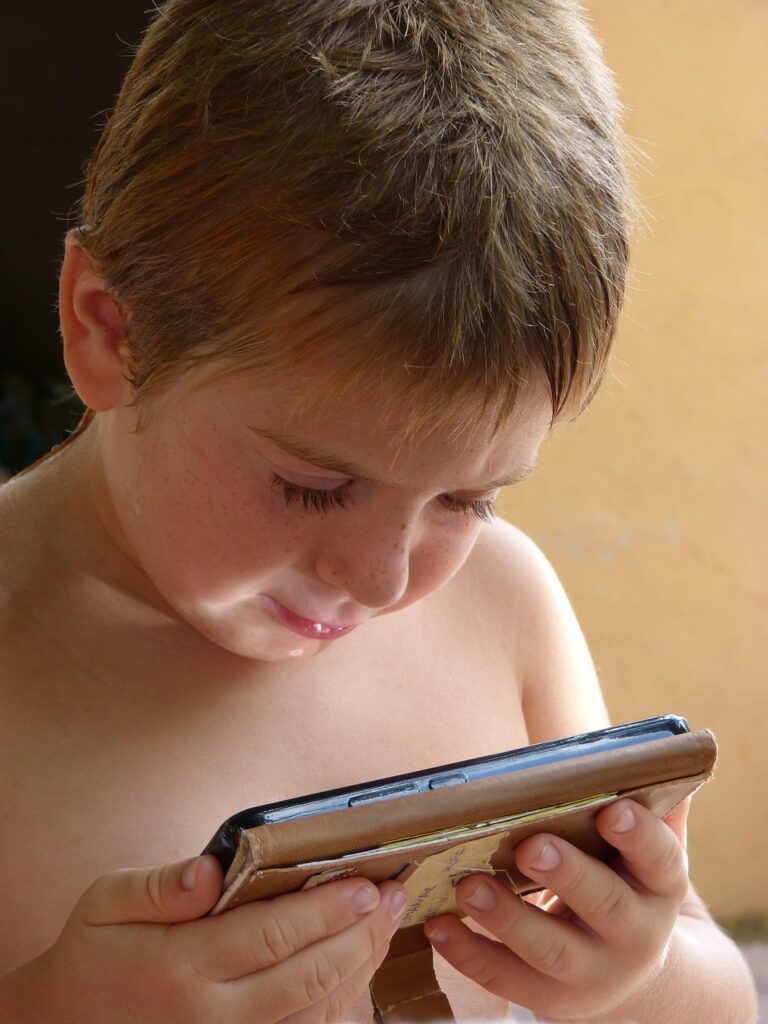I’m Not Ignoring Your Parenting Advice
— It Just Doesn’t Fit Anymore
Raising kids in a world you never had to navigate.
“Mom, Dad… I hear you.”
I know your advice comes from a place of love. You raised me the best way you knew how, and I’m grateful for that. But as much as I respect your experience, I need you to understand something: this isn’t the same world I grew up in — and it’s definitely not the world you raised me in.
As an elder millennial — born in the early 1980s — I was raised more like Gen X than the kids I’m raising now. We played outside until the streetlights came on. We waited for Saturday morning cartoons. We had to memorize phone numbers. And when we had a problem, we usually just “toughed it out.” There were no gentle parenting tips or mindfulness tools — we were simply expected to adapt.
And now? I catch myself trying to parent the same way. I say things like, “When I was a kid…” or “We didn’t do that growing up.” I try to lean on what worked for me — but the truth is, it doesn’t always work now. The context has changed.
I like technology. I’m not trying to raise my kids in the dark ages. But let’s be honest: there’s no handbook for raising children in a world with iPads, YouTube, social media, and AI. No one handed us a guide on how to manage screen time, teach digital safety, or help our kids regulate emotions in a 24/7 connected world. We’re learning as we go, and that’s both freeing and overwhelming.
So when I choose to do things differently — whether it’s how I discipline, how I talk about emotions, or how I set tech boundaries — it’s not a rejection of how I was raised. It’s a recognition that today’s world demands new tools, new conversations, and a different kind of awareness.
“We Did It This Way and You Turned Out Fine”
— Why That’s Not Enough Anymore?
We’ve heard it a hundred times: “We did it this way, and you turned out fine.”
While I appreciate the sentiment, that phrase doesn’t always land in a world so vastly different from the one you raised me in. When you say that, it’s almost like suggesting that the methods of yesterday should be good enough for today. But here’s the thing — fine doesn’t always mean healthy, balanced, or thriving. It often just means we survived, but we didn’t necessarily thrive.
The truth is, the world has changed dramatically since I was a kid. The challenges our children face today — from social media pressure to online bullying to the overwhelming flood of information they constantly consume — were things none of us had to worry about. Back then, kids played outside, had face-to-face interactions, and didn’t feel the weight of the world constantly on their shoulders via the screen in their pockets.
So, when I try to implement some of the strategies you used, I quickly realize that they don’t always work in today’s world. You didn’t have to deal with your child coming home upset about a post they saw on social media, or struggling to pull themselves away from a screen that’s constantly feeding them new stimuli. You didn’t have to explain to me why I needed to set digital boundaries, or have deep conversations with a 9-year-old about online safety. You didn’t have to teach me about how anxiety, depression, and other mental health issues are now a major part of the conversation for today’s kids.
As a teacher, I also see firsthand the effects of these changes on children’s behavior and emotional well-being. The kids I teach come to school with more emotional weight than I ever did, often due to things they encounter online or in their digital lives. They face a constant barrage of images, opinions, and comparisons, and it affects their self-esteem, their focus, and their ability to cope with challenges.
The “tough love” approach, or saying “just get over it,” might’ve worked for me because, quite frankly, the stakes weren’t as high. We didn’t have constant access to a world of people, opinions, and pressures. The emotional landscape was different.
Today, kids aren’t just struggling with school or playground issues. They’re dealing with the constant pressures of perfection, comparison, and exposure to information that even adults are still figuring out how to process. In many ways, “turning out fine” wasn’t the goal when you raised me. It was about survival — but now, I want my kids to thrive. And in order to do that, I need a different set of tools — tools I don’t always have the luxury of using in my own classroom, but that I’m doing my best to bring into my home.
When I was a kid, technology wasn’t a big part of life. The family computer was slow, shared, and mostly used for schoolwork. My parents didn’t worry about screen time, social media, or YouTube — we had limited TV, physical games, and plenty of outdoor play. The internet, if we had it, didn’t follow us around in our pockets.
But today, my kids are growing up in a world of iPads, smartphones, and endless connectivity. Even toddlers know how to swipe before they can tie their shoes. They’re digital natives — but that doesn’t make parenting them any easier.
As a teacher, I see how this constant connection affects kids. They struggle to focus, face pressure to keep up online, and are exposed to everything — from influencers to political debates — before they’re ready. Social media isn’t just fun anymore; it brings comparison, anxiety, and sometimes bullying.
This is where parenting and teaching collide. I know how much technology can impact kids’ mental health, and I’m constantly trying to help my own children balance screen time with real life. There’s no simple guide — it’s not just about limiting tech, but teaching them to self-regulate, build resilience, and develop a healthy relationship with the digital world.
Telling them to “go play outside” doesn’t always work anymore. The real challenge is helping them live in both worlds — online and off — safely, confidently, and with their well-being intact.

Choosing to parent differently is one thing — explaining it to your parents is another. It can be awkward, especially when your approach challenges how they raised you. But parenting today requires flexibility, and helping them understand that can go a long way.
Many of our parents come from a time when discipline was strict and emotions were often brushed aside. So when I talk about screen limits, emotional awareness, or gentle discipline, it can feel foreign to them. At first, there’s often confusion or pushback.
I’ve learned the best way to navigate these conversations is with patience and respect. I don’t reject their wisdom — I explain how today’s world, especially with technology, has changed what kids need. For example, I share how screen time affects focus, social skills, and emotional regulation — not to criticize, but to show why we do things differently.
Involving them in the process helps too. Asking for their input and showing appreciation for their experience opens the door for understanding, even if we don’t always agree. I’m not looking for approval — just mutual respect.
At the heart of it, the goal isn’t to argue, but to build a bridge between generations — honoring the past while adapting to the realities of parenting today.

I’ll be the first to admit — I’m not exempt from the changes that come with raising kids in the digital age. I know I’ve been part of the reason my kids are so tech-driven. I’ve handed them iPads, smartphones, and screens to keep them entertained, to buy myself a minute of peace, or just to let my partner and I sit down and have a meal together without constant interruptions. I’ve used technology as a tool — and sometimes, a crutch — to make life a little easier. But I also know that it’s my responsibility to help them find balance.
Sometimes, I just need a moment to breathe, a chance to enjoy a quiet dinner or a conversation without a screen lighting up in front of me. The reality is, this tech-driven world is hard to navigate, even as an adult. So, yes, I gave them access to technology — and sometimes it’s easy to fall into the habit of using it to make parenting a little simpler. But I can’t ignore the long-term effects it can have. And, truthfully, neither can they.
This doesn’t mean I’m about to throw the tech out the window or deprive them of the benefits that come with it. It’s about finding balance — teaching them how to engage with technology responsibly while also making sure they don’t miss out on the offline experiences that help them grow into well-rounded, emotionally aware individuals.
In the end, I know that I’m navigating this just like everyone else — trial and error. It’s not always going to be perfect, and I’m still learning every day. But as I raise my kids in this world of constant digital connection, I want them to know that the most important connection is the one they have with each other, with their emotions, and with the real world around them. And that’s something I can pass down — even if it doesn’t always look like how my parents did it.
How about You?
If you’re navigating the challenges of raising kids in the digital age, I’d love to hear from you. How do you handle screen time, emotional well-being, and technology in your home? Drop a comment or share your experiences — together, we can learn and grow through this journey. And remember, we’re all in this together. Let’s raise a generation that thrives, not just survives.
Send MessageCheers to thriving, not just surviving — and remember, your Mommy Mindset Matters. Until next time,

Get In Touch!
I read every message and try to respond as soon as possible.
Let’s support each other, grow together, and remind one another that our mindset truly does matter.
—
✨ Can’t wait to connect with you!
